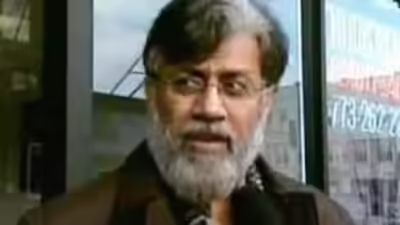
The National Investigation Agency (NIA) on Wednesday filed its first supplementary chargesheet against Tahawwur Hussain Rana, one of the accused in the 2008 Mumbai terror attacks, highlighting fresh evidence related to his involvement in facilitating reconnaissance missions carried out by David Headley. The case pertains to the larger conspiracy behind the attacks, which were orchestrated by Pakistan-based terror group Lashkar-e-Taiba (LeT).
Rana, who was extradited from the United States in April this year, was presented before the NIA Special Court at Patiala House through video conferencing. The proceedings were held in-camera, with Legal Aid Counsel Advocate Piyush Sachdev representing him. Following the submission of the chargesheet, the court extended Rana’s judicial custody until August 13. The court will take up the supplementary chargesheet for consideration on that date. His pending applications for a telephonic conversation with family and medical attention are scheduled to be heard on July 15.
The supplementary chargesheet contains additional documentation related to Rana’s extradition and fresh evidence gathered by the NIA regarding his role. He is accused of allowing Headley to use his immigration services business as a front to stay in Mumbai while conducting surveillance of potential terror targets. These included the Taj Mahal Palace Hotel, Oberoi Trident, Nariman House, CST railway station, Leopold Café, Cama Hospital, and other locations that were later attacked by 10 LeT gunmen during the 26/11 assault.
Rana, a Canadian national and former Pakistan Army personnel, is also known to be a childhood friend of David Headley. Investigators assert that he was fully aware of Headley’s objective in India and helped him obtain an Indian visa using false and incomplete information, concealing crucial details about his identity and origin.
The criminal conspiracy case involves multiple individuals affiliated with Lashkar-e-Taiba and HuJI (Harkat-ul-Jihad al-Islami), aimed at executing terror strikes across India. The 26/11 Mumbai attacks resulted in the death of 166 people, including several foreign nationals, and caused extensive damage and global outrage.
Overview
Mission: To provide timely, in-depth analysis and reporting on digital policy, tech adoption, and the impact of transformation on citizens and businesses.
Focus Areas: Digital governance (e‑services, e‑payment systems like UPI), FinTech, cyber‑security, digital identity (Aadhaar), digital literacy, Internet of Things, AI, and rural connectivity initiatives.
Audience: Policymakers, tech leaders, entrepreneurs, academics, and citizens interested in India’s digital future.
Under Srinivas G. Roopi’s leadership, Digital India Times offers a trusted window into the breakthroughs and challenges of India’s digital revolution—staying true to its tagline by continuously tracking the transformation reshaping the country.
Copyright ©2025 Digital IndiaTimes. All Rights Reserved
Designed and Developed by Galaxy Tech Solutions